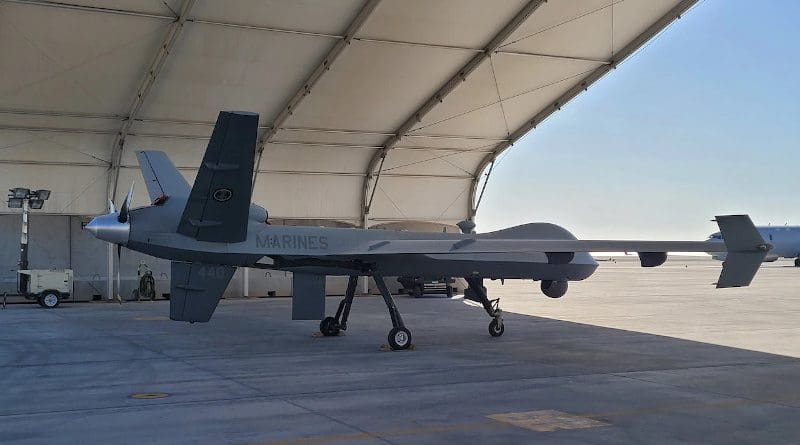Regional Solutions Needed To Address Middle East Security, US General Says
By DoD News
By David Vergun
U.S. Central Command is the only geographic combatant command that routinely engages with U.S. adversaries, including violent extremist groups that aim to destabilize the region, its commander said Tuesday.
Marine Corps Gen. Kenneth F. McKenzie Jr. said the two most urgent threats in the coming years will most likely be the proliferation of cheap and capable unmanned aerial vehicles used by extremist groups, as well as humanitarian crises in the Middle East caused by poor governance, which could serve to radicalize youths.
The U.S. military cannot solve these problems alone, he told a virtual gathering of the American Enterprise Institute in a broad-ranging discussion of topics concerning the Middle East. It will require a regional solution, as well as working with allies and partners such as NATO.
Security and prosperity are incredibly important in the region, he said. Among the many reasons: About 15% of the world’s oil and natural gas originates there, and the Suez Canal is a major world waterway to global commerce.
“It’s no surprise at all that we’re seeing accelerated efforts by China and Russia to establish bases and expand ties in the region,” he said.
“Russia is in the region because it perceives opportunities, while gaining warm-water ports that allow it to contest freedom of navigation in the Middle East,” he said. “China is playing a longer game that involves economic deals that are very enticing and appealing, but carry substantial costs down the road. Ultimately, China hopes to supplant the United States as the partner of choice in the region and is making inroads wherever it sees opportunities — whether through the sale of military equipment, the provision of COVID vaccines or offers of debt traps in development contracts.”
McKenzie said U.S. Centcom is working closely with U.S. Forces Afghanistan and the NATO-led Resolute Support Mission to ensure the withdrawal of forces from Afghanistan in a deliberate and synchronized manner that protects personnel and equipment.
The department is working through how it will continue to manage counterterrorism security assistance to the Afghan government as forces draw down, he added.
The department is also steadfastly supporting ongoing diplomatic efforts to end the long war and get a commitment from the Taliban to cease its relationship with al-Qaida and prevent Afghanistan from being used by terrorist groups as a base to plan attacks on the U.S. homeland, he said.
The department is also drawing up contingency plans to conduct over-the-horizon counterterrorism operations in Afghanistan if that should become necessary, he said.

